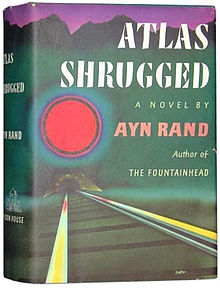[contextly_auto_sidebar]
FOR most of my life — I was a kid during the Reagan Revolution — I’ve been puzzled by otherwise smart people falling for Libertarianism and Ayn Rand’s brand of freedom snake oil. Everybody likes the idea of freedom, but for the Fountainhead crowd, the notion acquires cartoonish dimensions, and their definition of the term seems to tilt toward rich businessmen and other Uber-menschen.
If you live in a more-or-less urban, blue-state, college-educated world, you probably don’t overlap a great deal with conservatives who come from an evangelical, agrarian, or even (depending on your generation) neo–con point of view. But you’re likely to have a bunch of friends or colleagues who are or were Randians or Libertarians.
The American conservative movement and the Republican party in particular has been through a series of love affairs and breakups with the Randtites. There are always an array of right-of-center groups, rearranging and reforming. The current political situation is as confusing and unstable as the current occupant of the White House, so it’s easy to find observers who see the Libertarians’ day as being over, as Southern evangelicals, say, or law-and-order conservatives push them aside. But Ayn Rand fans in finance, the alternate universe of think tanks, and Silicon Valley exert a huge influence on 21st century politics.
In any case, here is my essay for the Los Angeles Review of Books, which looks at two newish books and, briefly, an older one. 
